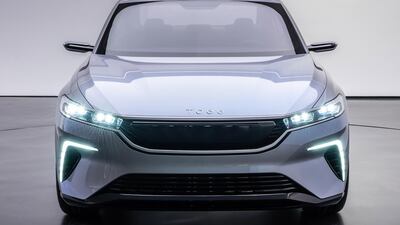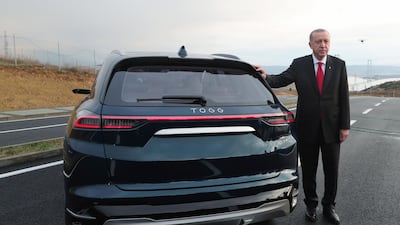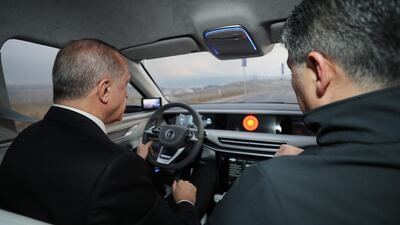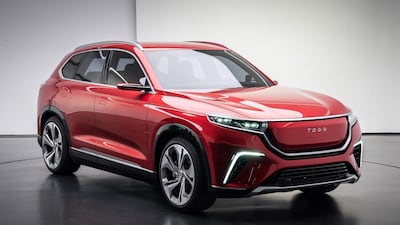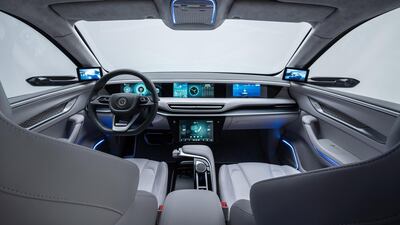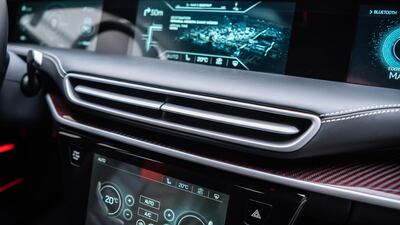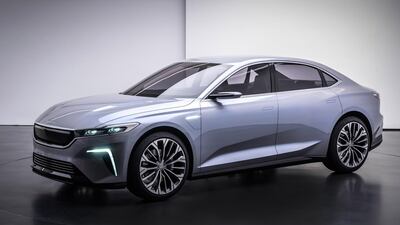Turkey unveiled its first fully domestically-produced car on Friday, saying it aimed to eventually produce up to 175,000 a year of the electric vehicle in a project expected to cost 22 billion lira ($3.7 billion) over 13 years.
The project has been a long-time goal of President Tayyip Erdogan and his ruling AK Party as a demonstration of the country's growing economic power.
Speaking at the unveiling ceremony, Mr Erdogan said Turkey aimed not only to sell the car domestically but also wanted it to become a global brand, starting with Europe.
"We're all together witnessing Turkey's 60-year-old dream become reality," he said, referring to failed plans in the past to build a fully home-produced car. "When we see this car on roads around the whole world, we will have reached our goal."
Following his speech, a red SUV model of the car and another grey sedan one were raised onto the stage, sporting the TOGG label of the consortium that is building them.
Erdogan said the charging infrastructure for electric cars would be ready nationwide by 2022.
Turkey is already a big exporter to Europe of cars made domestically by firms such as Ford, Fiat Chrysler , Renault, Toyota and Hyundai .
The new project, launched in October, will receive state support such as tax breaks, and establish a production facility in the automotive hub of Bursa in northwest Turkey, according to a presidential decision in the country's Official Gazette.
Five models of the car will be produced, the statement said, adding the government had guaranteed to buy 30,000 of the vehicles by 2035.
Erdogan first revealed plans in November 2017 to launch a car made entirely in Turkey by 2021.
The consortium, called Turkey's Automobile Initiative Group (TOGG), was established in mid 2018 by five industrial groups: Anadolu Group, BMC, Kok Group, mobile phone operator Turkcell and Zorlu Holding, the parent of TV maker Vestel .
TOGG's CEO is former Bosch executive Gurcan Karakas and its chief operating officer is Sergio Rocha, former General Motors Korea chief executive. It said it would begin production in 2022 with compact SUVs.
In October, Volkswagen said it had postponed a final decision on whether to build a car plant in Turkey amid international criticism of an October Turkish military operation in Syria.
